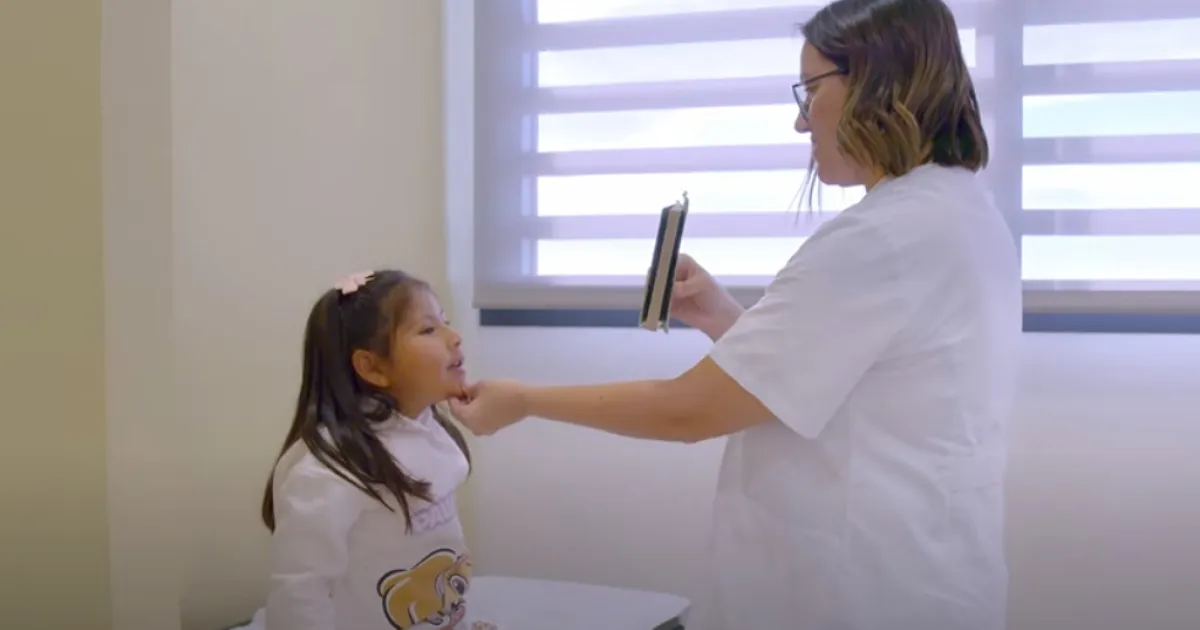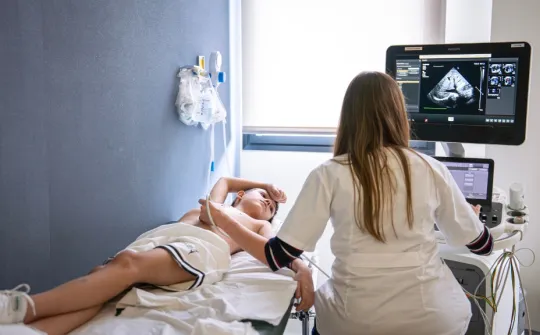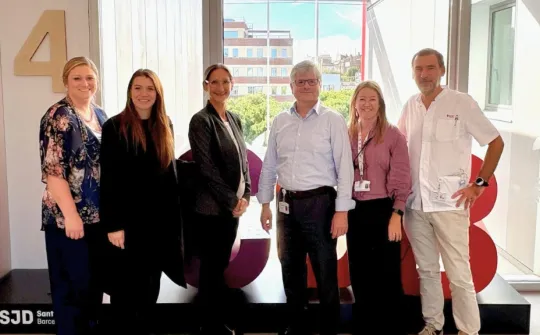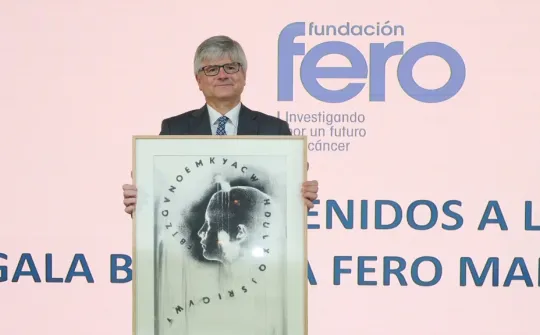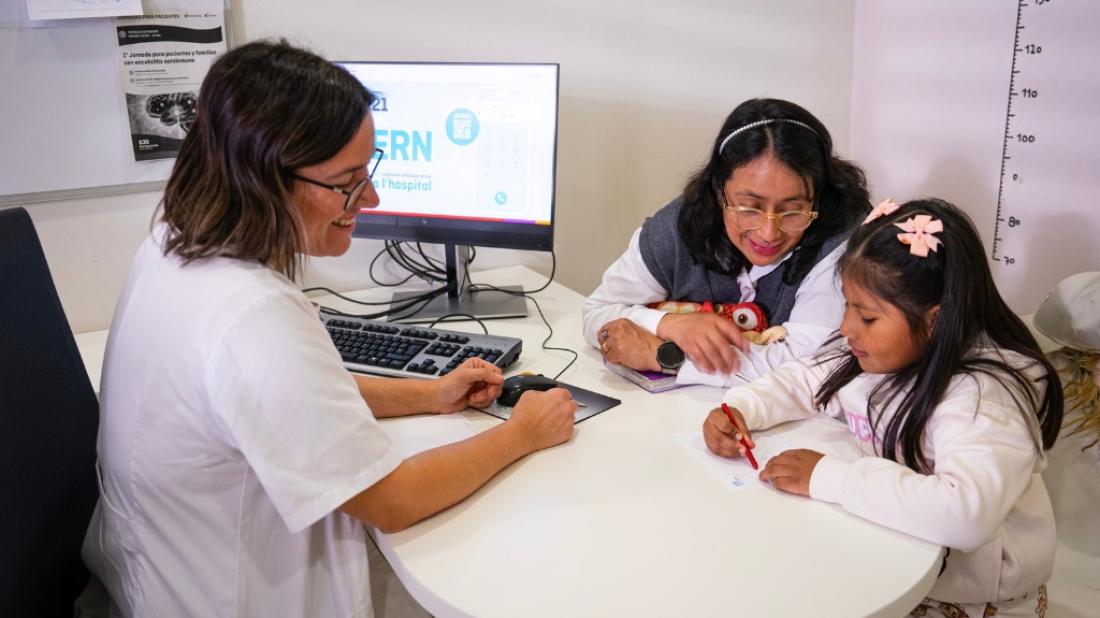
A team of researchers from SJD Barcelona Children's Hospital and IDIBAPS-Hospital Clínic Barcelona published a study confirming that both algorithms in use thus far can reliably be used to detect autoimmune encephalitis in paediatric patients, though they are limited in the ability to diagnose cases in which no neuronal antibodies are found.
Encephalitis refers to a group of inflammatory diseases of the central nervous system that can cause changes in the patient’s mental state, as well as memory loss, seizures or neurological deficits. They may be caused by various factors, but mainly by infections or by an autoimmune response, in which the immune system mistakenly attacks the body’s own proteins (in this case, neurotransmitter receptors or neuronal surface proteins). It is important to identify the cause early and accurately, as treatment depends on it and can influence the patient’s prognosis.
Autoimmune encephalitis is primarily diagnosed based on the detection of antibodies working against the body’s own proteins. Unfortunately, this a complex test that can take weeks. Waiting for the results is one of the most common reasons for diagnostic delays, and consequently, delays in treatment. This is especially critical for patients whose disease is progressing rapidly, such as in a matter of weeks.
Two diagnostic algorithms were developed to assist in the early detection and treatment of patients who may have autoimmune encephalitis and to avoid waiting for antibody test results: a general algorithm, for all ages, and one specifically for children. The usefulness and accuracy of these algorithms in paediatric patients was previously unknown, as many diseases can mimic or initially present similarly to autoimmune encephalitis.
Following the testing performed during this study, about one-third of the children suspected of having autoimmune encephalitis did indeed end up having it or another well-defined inflammatory condition.
What do the two algorithms show?
Now, an article published in The Lancet Neurology studies the diagnostic effectiveness of these two algorithms for children, placing special emphasis on patients with autoimmune encephalitis in whom antibodies are not detected. The first author of the study is Gemma Olivé-Cirera, an IDIBAPS predoctoral researcher. It was led by Thaís Armangué, a neuropaediatrician researcher at IDIBAPS-Hospital Clínic Barcelona and the head of the Neuroimmunology Unit at SJD Barcelona Children's Hospital, and by Josep Dalmau, coordinator of the SJD Neuroimmunology Programme and the head of the IDIBAPS research group Pathogenesis of autoimmune neuronal disorders - CaixaResearch Institute.
"When evaluating a child with suspected autoimmune encephalitis, we must bear in mind that MOG and NMDAR antibodies are associated with 85% of all antibody-linked cases of paediatric autoimmune encephalitis, but some forms can occur without autoantibodies. This diagnosis suggests that immunotherapy should be continued or intensified, but it is hard to be sure", Thaís Armangué explains.
The results show that both the general and paediatric diagnostic algorithms accurately detect cases of paediatric autoimmune encephalitis in which antibodies are detected. However, they also show limitations in diagnosing patients with possible autoimmune encephalitis without antibodies. The paediatric algorithm, which is more sensitive, detects more cases of antibody-negative encephalitis, some of which would not have been diagnosed otherwise, but it also includes others that do not actually have the disease. The general algorithm acts in the opposite way: it does not detect all cases of autoimmune encephalitis, but neither does it overdiagnose non-inflammatory cases. These results have a significant impact, as they suggest that the criteria for this group of patients may need to be revised.
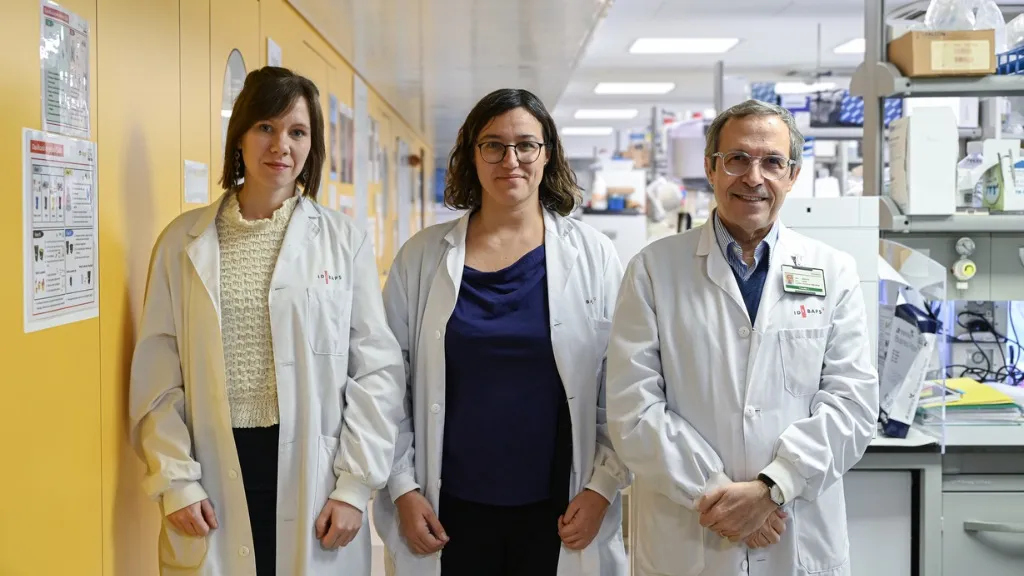
729 cases analysed
The study, supported by the Carlos III Health Institute, The Edmond J Safra Foundation, and the “La Caixa” Foundation, recruited 729 boys and girls with suspected autoimmune encephalitis from different Spanish healthcare centres. All underwent extensive screening for neuronal antibodies and were monitored for two years to confirm that they had encephalitis and not some other, similar condition. Finally, at the end of the monitoring period, the two algorithms were run and the researchers compared how these patients would have been classified solely by using the algorithms and, therefore, what therapeutic recommendations would have been made.
"Both algorithms seem to be reliable for diagnosing autoimmune encephalitis with antibodies in paediatric patients, regardless of which one we use. However, close monitoring is recommended for children suspected of having antibody-negative encephalitis", Armangué says.
Following the extensive antibody testing performed during this study, about one-third of the children suspected of having autoimmune encephalitis did indeed end up having it or another well-defined inflammatory condition. The most common mimics of autoimmune encephalitis were infections, epileptic disorders and psychiatric conditions. An inflammatory brain disorder of unknown cause was found in 10% of the children. The study describes the associated clinical forms of these mimics, including a new syndrome that could aid in future identification efforts.
What is Autoimmune Encephalitis and how is it treated at the Hospital's Neuroimmunology Unit?
On the occasion of World Encephalitis Day, 22nd February, and also the 10th anniversary of the Neuroimmunology Unit of the SJD Barcelona Children's Hospital, we invite you to discover this area and the work of its professionals.
